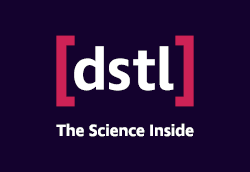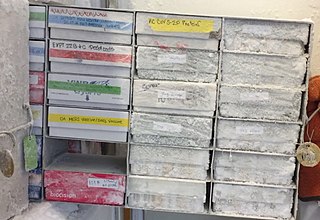
The European Medicines Agency (EMA) is an agency of the European Union (EU) in charge of the evaluation and supervision of pharmaceutical products. Prior to 2004, it was known as the European Agency for the Evaluation of Medicinal Products or European Medicines Evaluation Agency (EMEA).
The Medicines and Healthcare products Regulatory Agency (MHRA) is an executive agency of the Department of Health and Social Care in the United Kingdom which is responsible for ensuring that medicines and medical devices work and are acceptably safe.
The Engineering and Physical Sciences Research Council (EPSRC) is a British Research Council that provides government funding for grants to undertake research and postgraduate degrees in engineering and the physical sciences, mainly to universities in the United Kingdom. EPSRC research areas include mathematics, physics, chemistry, artificial intelligence and computer science, but exclude particle physics, nuclear physics, space science and astronomy. Since 2018 it has been part of UK Research and Innovation, which is funded through the Department for Business, Energy and Industrial Strategy.

The Defence Science and Technology Laboratory (Dstl) is an executive agency of the Ministry of Defence of the United Kingdom. Its stated purpose is "to maximise the impact of science and technology for the defence and security of the UK". The agency is headed by Paul Hollinshead as its chief executive, with the board being chaired by Adrian Belton. Ministerial responsibility lies with the Minister for Defence Procurement.
The Economic and Social Research Council (ESRC), formerly the Social Science Research Council (SSRC), is part of UK Research and Innovation (UKRI). UKRI is a non-departmental public body (NDPB) funded by the UK government. ESRC provides funding and support for research and training in the social sciences. It is the UK's largest organisation for funding research on economic and social issues.
The Joint Committee on Vaccination and Immunisation (JCVI) is an independent expert advisory committee that advises United Kingdom health departments on immunisation, making recommendations concerning vaccination schedules and vaccine safety. It has a statutory role in England and Wales, and health departments in Scotland and Northern Ireland may choose to accept its advice.
Innovate UK is the United Kingdom's innovation agency, which provides money and support to organisations to make new products and services. It is a non-departmental public body operating at arm's length from the Government as part of the United Kingdom Research and Innovation organisation.
ARPA-E, or Advanced Research Projects Agency–Energy is a United States government agency tasked with promoting and funding research and development of advanced energy technologies. It is modeled after the Defense Advanced Research Projects Agency (DARPA).
The United Kingdom Space Agency (UKSA) is an executive agency of the Government of the United Kingdom, responsible for the United Kingdom's civil space programme. It was established on 1 April 2010 to replace the British National Space Centre (BNSC) and took over responsibility for government policy and key budgets for space exploration; it represents the United Kingdom in all negotiations on space matters. The Agency "[brings] together all UK civil space activities under one single management". It is based at the former BNSC headquarters in Swindon, Wiltshire.

The London Institute is Britain's only independent research centre in theoretical physics and mathematics. It was founded to be an alternative to universities, where scientists have to spend time on teaching and administrative duties. Instead, the Institute gives its researchers the freedom and support to devote themselves to research full-time.
UK Research and Innovation (UKRI) is a non-departmental public body of the Government of the United Kingdom that directs research and innovation funding, funded through the science budget of the Department for Science, Innovation and Technology.

A COVID‑19 vaccine is a vaccine intended to provide acquired immunity against severe acute respiratory syndrome coronavirus 2 (SARS-CoV-2), the virus that causes coronavirus disease 2019 (COVID‑19).

COVID-19 drug development is the research process to develop preventative therapeutic prescription drugs that would alleviate the severity of coronavirus disease 2019 (COVID-19). From early 2020 through 2021, several hundred drug companies, biotechnology firms, university research groups, and health organizations were developing therapeutic candidates for COVID-19 disease in various stages of preclinical or clinical research, with 419 potential COVID-19 drugs in clinical trials, as of April 2021.

The COVID-19 pandemic has affected innumerable scientific and technical institutions globally, resulting in lower productivity in a number of fields and programs. However, the impact of the pandemic has also led to the opening of several new research funding lines for government agencies around the world.

The Vaccine Taskforce in the United Kingdom of Great Britain and Northern Ireland was set up in April 2020 by the Second Johnson ministry, in collaboration with Chief Scientific Advisor Patrick Vallance and Chief Medical Officer Professor Chris Whitty, in order to facilitate the path towards the introduction of a COVID-19 vaccine in the UK and its global distribution. The taskforce coordinated the research efforts of government with industry, academics and funding agencies in order to expedite vaccine development and deployment.
Dame Catherine Elizabeth Bingham HonFMedSci is a British venture capitalist. She is a managing partner at a venture capital firm, SV Health Investors. In 2020, Bingham chaired the government's Vaccine Taskforce, steering procurement of vaccines during the COVID-19 pandemic in the United Kingdom.

The COVID-19 vaccination programme in the United Kingdom is an ongoing mass immunisation campaign for coronavirus disease 2019 (COVID-19) during the COVID-19 pandemic in the United Kingdom.

SARS-CoV-2, the virus that causes COVID-19, was isolated in late 2019. Its genetic sequence was published on 11 January 2020, triggering an urgent international response to prepare for an outbreak and hasten the development of a preventive COVID-19 vaccine. Since 2020, vaccine development has been expedited via unprecedented collaboration in the multinational pharmaceutical industry and between governments. By June 2020, tens of billions of dollars were invested by corporations, governments, international health organizations, and university research groups to develop dozens of vaccine candidates and prepare for global vaccination programs to immunize against COVID‑19 infection. According to the Coalition for Epidemic Preparedness Innovations (CEPI), the geographic distribution of COVID‑19 vaccine development shows North American entities to have about 40% of the activity, compared to 30% in Asia and Australia, 26% in Europe, and a few projects in South America and Africa.

The Advanced Research and Invention Agency Act 2022 is an act of Parliament of the United Kingdom that creates the Advanced Research and Invention Agency. It was introduced in the House of Commons by the Secretary of State for Business, Energy and Industrial Strategy Kwasi Kwarteng on 2 March 2021.
Ilan Gur is an American chief executive officer and entrepreneur. He is currently chief executive officer of the UK's Advanced Research and Invention Agency (ARIA), an independent science funding body.









